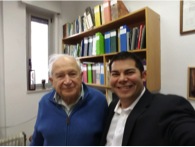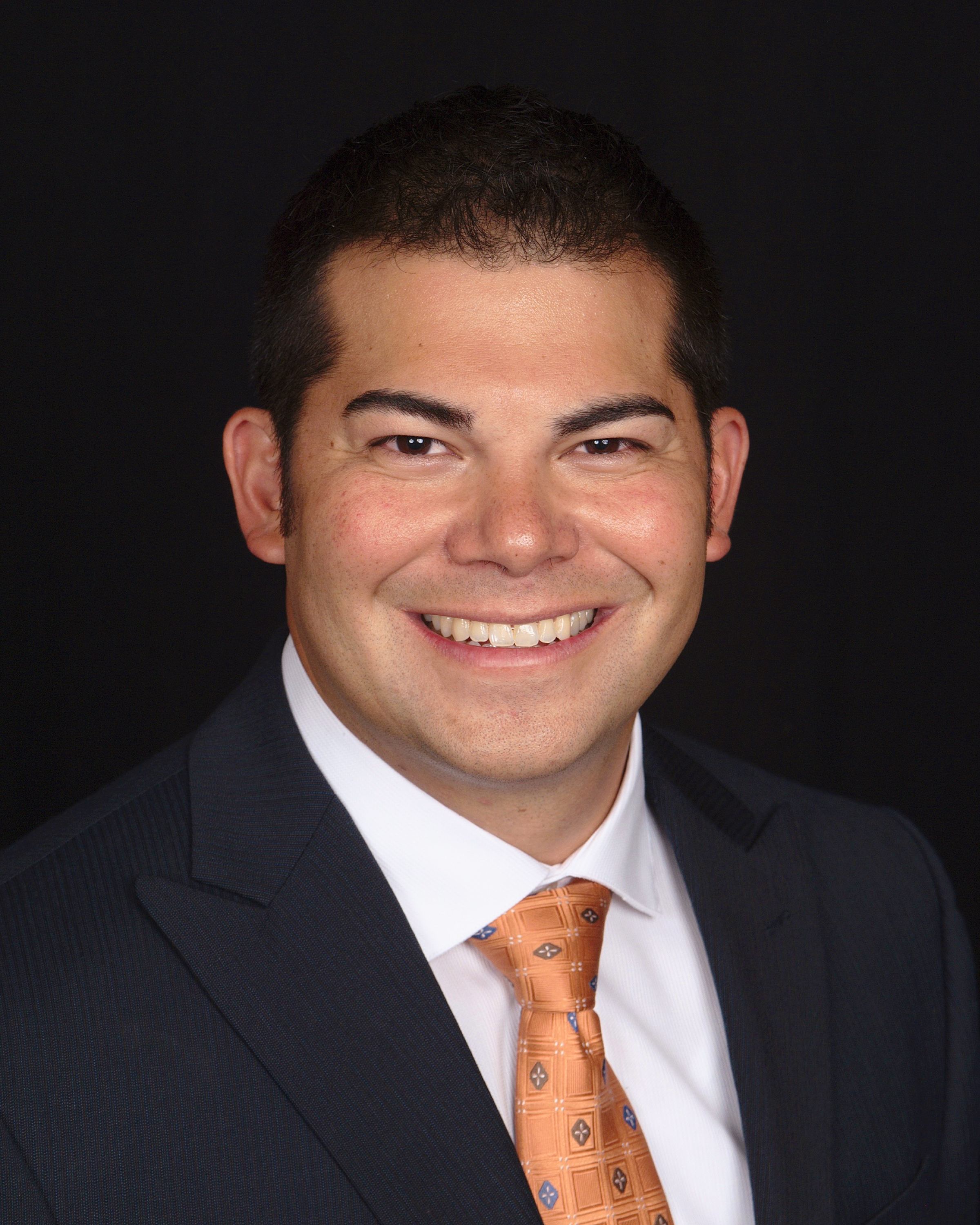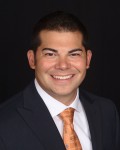I had the pleasure of visiting the famous Dr. Raphael Mechoulam last month at his Hebrew University office just outside of Jerusalem, Israel. For those who may not have heard of him, Dr. Mechoulam is essentially the godfather of the endocannabinoid system. He is best known for his work in isolating and totally synthesizing delta-9 tetrahydrocannabinol (THC). Dr. Mechoulam is one of the leading recognized scientists in our field. Much of his work is focused on the nervous system, specifically how various acids, and particularly cannabinoids, bind to the nervous system and thus their effect on humans.
Dr. Mechoulam is a humble man whose energetic demeanor belies his age. He speaks six languages and continues working regularly even at the age of 86. His mind is as sharp as any 25 year old and, while our meeting was short, it lacked nothing in content.

His discoveries in cannabis have not been his only accolades and only represent about a third of his work in his accomplished life time. He has a vast number of papers and studies related to fatty and amino acids and their effect on the brain. The underlying principles of all of Dr. Mechoulam’s areas of study are similar and he has equally distinguished himself in these fields as he has in the realm of cannabis. Because of it’s taboo nature and the limited amount of sophisticated scientific research that cannabis has been subject to, Dr. Mechoulam is more widely recognized for this specific focus.
During our brief hour-long meeting, we discussed the impact of cannabinoids on cancer patients and bone marrow transplants, his cannabis research on schizophrenia as well as the role cannabis plays in diabetes patients – all topics on which he has volumes of published research but stressed the point that more research needs to be done; we have only scratched the surface.
Dr. Mechoulam is an inquisitive man who is always investigating, digging, and striving to understand more about the effects of cannabis, fatty, and amino acids on the brain. When asked what charge the cannabis and medical industries need to pursue, he stressed the need for more scientific studies to investigate the impact of cannabis not just on the brain but the entire human body, as well as the need for grants to help promote those studies. Dr. Mechoulam specifically stressed the importance that these studies employ scientific vigor in a responsible and legal manner.
He is man of high moral ground, inquisitive nature, and a thorough investigator. I am privileged and humbled to have met him and heed his call to bring sophisticated and responsible scientific studies to the forefront of the Cannabis Green Rush.




could I receive some of the more recent material. or something of that nature.
hi seth
i am AVI LEB STAIMAN PHD NEUROSCIENTIST colleague of DR MECHOULAM
just wrote him about discovering your AVIDEKEL at MEDRELEAF is the same strain
I developed back in the late 1990’s on HORNBY ISLAND where I was doing my
breeding program to match the requirements of the TEMPLE OIL in Jerusalem
as well as other symptoms i had as a patient for 50 years of CAnnabis for spinal
bone spurs and inflamtion. I was a team member at U OF T .. nobel quote 2000 for DOPAMINE RECEPTORS……..I developed many many starins her in BC
I was persecuted for doing my science and my human rights the medical ones too were violated
I wanted to continue my work and seek veryone help to tell OTTAWA to have some respect for seniour scientist like my self i sacifice a lifetime toward CBD
MY WORK WAS 10 YEARS AHEAD OF THE ISRAELIS
EVEN FOR PTSD ……was on to it back after 1979
AND IT WAS MY CONDITION
AS WELL
was waiting for the election results now i want to do a small project that will also suplly my medical needs for CBD
but i am paralized by the trauma of OTTWA no seem approach ruining my entire life
like galelio in ancient days
There is a great 7-minute video on YouTube with Dr. Mechoulam. It’s a clip from the PBS special “Botany of Desire”, based on the book with the same name by Michael Pollan, which looks at four plants that been especially significant for humans: cannabis, tulips, apples, and potatoes. In this clip the subject is how cannabis can help people with PTSD, and Pollan discusses it with Mechoulam, Allyn Howlett, who discovered the first cannabinoid receptors in humans, and Roger Nicoll from U of SF and Aron Lichtman from VCU, who are researching the issue. It’s fascinating! https://www.youtube.com/watch?v=VBIxA0CqNx4
I have been using concentrated cannabis since diagnosed type 1 GAD positive in Oct 2011 at age 51.
2011 A1c 5.9 Gad antibody greater than 250
2012 A1c 5.7
2013 A1c 5.4 C-peptide 1.8 Gad antibody 134
2014 A1c 5.2 C-peptide 2.0
2016 A1c 5.2 C-peptide 2.4
The only drug I have used is Lisinopril for high blood pressure. I have taken zero diabetic drugs.
I’m sold!!